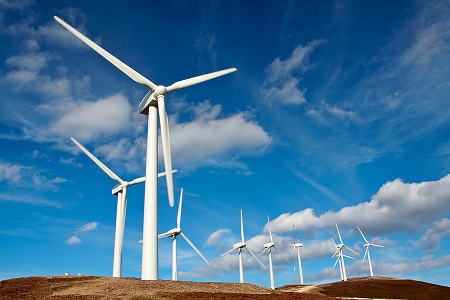In a recent interview, Minister for Industry Ian Macfarlane said "nothing had changed", and the "real" RET proposed was reflective of a fall in electricity usage in Australia.
"When the target was set, when the Coalition agreed to 20 per cent, the expected production of electricity was 300,000 gigawatt hours," he said.
"Move forward to 2014, the overall prediction of electricity consumption has fallen by 15 per cent to 255,000 gigawatt hours. And on that basis the amount of electricity we need to produce in terms of renewables is 51,000 gigawatt hours. No change, still 20 per cent."
Value of major projects 'smashed'
However the Clean Energy Council (CEC) claimed the government's proposal would "smash" the value of projects that were already operating and potentially expose them to massive compensation claims from industry.
Clean Energy Council Acting Chief Executive Kane Thornton said it was not only future projects and jobs that were on the line if the RET was slashed.
"A retrospective change to the policy would result in financial impairment and a substantial risk that existing projects and businesses would collapse, as well as inflicting damage on Australia's reputation as a safe place to invest," Thornton said.
"A cut in the target of the scale proposed by the government would have far reaching and damaging consequences, and … adequate compensation would be an extraordinarily complex and expensive task.
"The Renewable Energy Target legislation that has been supported by all political parties for over a decade is explicit about the 41,000 GWh target, and the Coalition re-stated its commitment to the fixed 41,000 GWh target in the lead up to the recent election.
"Moving the goal posts so significantly on investors would result in massive asset devaluation, job losses and business closures, and send a signal to international investors that Australia is closed for business."
On Thursday (30 October) a company behind plans for several large scale renewable energy projects in Victoria said it 'could end up leaving Australia altogether" if the proposed RET changes were passed.
Better tech incentives needed to reach current RET
Former Liberal senator Robert Hill said rather than trying to adjust huge figures the RET review should place more focus on greater incentives to encourage technological breakthroughs.
"What we need is the next generation of renewable energies and the current incentives don't encourage much risk," Professor Hill said.
Professor Hill introduced the RET in his role as Environment Minister in the Howard government as a way to increase Australia's supply of renewable energy.
"The problem is the pace of change is still insufficient given the countervailing influences of population growth and economic growth particularly in the developing world," Professor Hill said.
"The answer is that we all need to do more."
Professor Hill highlighted the development of low carbon building products, an expansion of photovoltaic products, and the integration of photovoltaics into building construction for both heating and cooling, as areas of significant opportunity.
Professor Hill also argued that Australia should be powering more of its domestic energy requirements with natural gas because it is about half as carbon intensive as coal.
"Government should resolve to see this happen on the east coast and to seek out the policies and measures that will allow it to occur in a cost effective way," he said.
"At the moment development of the resource is hindered, infrastructure is lacking, and there is insufficient competition in the market."



-160x160-state_article-rel-cat.png)



-160x160-state_article-rel-cat.png)




-160x160-state_article-rel-cat.png)



